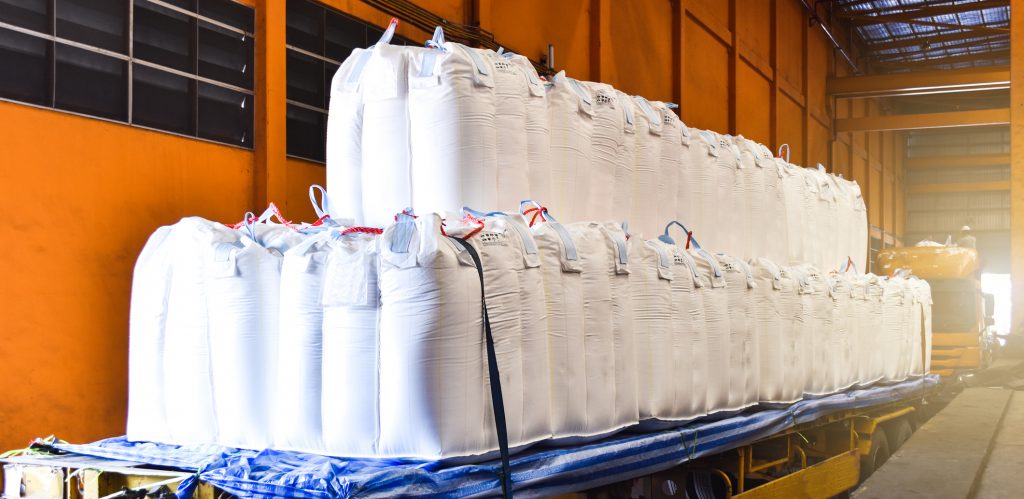Introduction
At RDA Bulk Packaging
RDA Bulk Packaging takes pride in offering Type D Bulk Bags, a specialized solution designed to address potential risks associated with combustible dust in specific industries. These innovative bulk bags are constructed with unique antistatic properties, effectively minimizing the risk of electrostatic discharges and providing a safer and more reliable packaging option for handling and transporting combustible materials.


Some
Key Features
- Static Dissipative Properties: Type D Bulk Bags are engineered with specific static dissipative properties, making them suitable for use in environments where combustible dust may be present. The antistatic feature enables any static charges that may build up during filling or discharge to safely dissipate, significantly reducing the risk of ignition and potential fire hazards.
- Safe Handling of Combustible Materials: In industries dealing with flammable or combustible materials, such as chemicals, powders, and grains, Type D Bulk Bags offer an essential safety measure to prevent fire and explosion hazards caused by static electricity. Their static dissipative nature ensures that the bags can be safely used in potentially hazardous environments.
- Food-Grade and Safe: Our Type D Bulk Bags are fabricated from food-grade polypropylene (PP) material, adhering to strict food safety standards. This characteristic makes them ideal for packaging food products that may exhibit combustible dust properties, ensuring both safety and compliance with food industry regulations.
- Strength and Reliability: Despite their antistatic properties, Type D Bulk Bags maintain the same robustness and reliability as standard FIBC bags. They are designed to handle heavy loads and withstand the rigours of transportation and storage, providing the utmost protection for valuable products.
- Variety of Configurations: We offer a comprehensive range of configurations for Type D Bulk Bags, including various sizes, lifting options, and discharge features. This versatility allows us to provide tailored packaging solutions that cater to the unique needs of different industries and applications.
Its
Advantages
- Enhanced Safety: Type D Bulk Bags significantly reduce the risk of static discharge, improving safety and mitigating potential fire or explosion hazards in environments where combustible dust is present. Industries can use these bags to demonstrate their commitment to worker safety and regulatory compliance.
- Compliance with Regulations: Many industries are subject to safety regulations and guidelines when handling combustible materials. Using Type D Bulk Bags, businesses can ensure compliance with relevant safety standards, avoiding potential legal and operational complications.
- Reduced Product Loss: The antistatic properties of Type D Bulk Bags help minimize product losses due to static cling during the filling and discharge processes. This ensures efficient material handling, reducing waste and maximizing productivity.
- Customized Packaging Solutions: Our Type D Bulk Bags can be customized to suit specific application requirements. From choosing the appropriate bag size and lifting options to incorporating company branding, we provide tailored packaging solutions that cater to your unique needs.
- Cost-Effective Packaging: Type D Bulk Bags offer a cost-effective and reliable solution for industries that handle combustible materials. These bags provide long-term cost savings and operational efficiencies by mitigating the risk of accidents and potential damage to valuable products.
With RDA Bulk Packaging’s Type D Bulk Bags, your business can confidently handle and transport combustible materials while ensuring compliance with safety regulations and maintaining a secure supply chain. Contact us today to discuss your specific packaging needs and explore how our Type D Bulk Bags can enhance safety and efficiency in your operations.
Its
Applications
Type D Bulk Bags find extensive applications in packaging and transporting a wide range of combustible materials, including, but not limited to:
• Chemical Powders and Granules
• Pharmaceutical Powders
• Agricultural Products
• Grain and Flour
• Plastics and Resins
• Metal Powders



